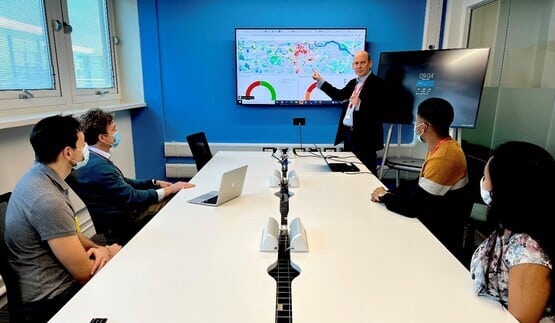South London and Maudsley cuts blood test results wait times
- 14 November 2022

South London and Maudsley NHS Mental Health Trust has developed a new antipsychotic blood test system that cuts the wait time for results from days to just minutes.
The new point-of-care blood test has the potential to reduce the waiting time for test results and the length of inpatient bed stays. The finger prick test, provided by Saladex Biomedical, delivers results in just six minutes, a considerable reduction on the previous 5-10 days’ waiting time.
It can determine whether a patient taking medication needs to receive higher or lower levels of the drug based on the patient’s symptoms.
Using interoperability methods that enable results to be moved quickly between collection devices and display data in real-time, clinicians are supported to make rapid decisions on dose adjustments, which helps to stabilise patients quicker and reduce inpatient bed stays to three weeks instead of three months.
Stuart MacLellan, chief information officer at South London and Maudsley, said: “This new blood testing system has the potential to significantly reduce the length of inpatient stays. This is invaluable given the significant demand for NHS mental health services now.
“Not only does this test reduce pressure on services, it empowers patients, giving them more control around their care – ultimately improving outcomes.”
South London and Maudsley has partnered with ReStart, an integration and interoperability provider, to connect systems across Healthier South East London Integrated Care System (ICS) and the wider Local Health and Care Record Exemplar, One London to ensure clinicians can access results promptly.
Andy Meiner, chief revenue officer at ReStart, said: “We are proud to be the interoperability provider to South London and Maudsley NHS Trust.
“They remain the mental health experts within the NHS, spearheading ground breaking research which in turn improves patient outcomes, saves resources and shortens care journeys.”
Patients are better informed and more engaged with their treatment, thanks to having instant results at the point of care.
Clinicians also have direct access to a visualisation display, that shows the outputs of the test results, giving them the ability to calculate trends across defined time periods.
Sal Salamone, founder and CEO of Saladax Biomedical, said of the opportunity to work with South London and Maudsley: “From the improved patient-friendly blood collection to providing immediate test results while the patient is present, will significantly improve patient care and the drug’s effectiveness.
“In addition, this disruptive technology will dramatically impact the use and efficacy of clozapine drug treatment.”
Positive strides in the NHS have been made in recent months with regards to mental health. Last month, Alder Hey Children’s NHS Foundation Trust launched a new online one-stop shop to help children and young people with mental health issues across Liverpool and Sefton.




